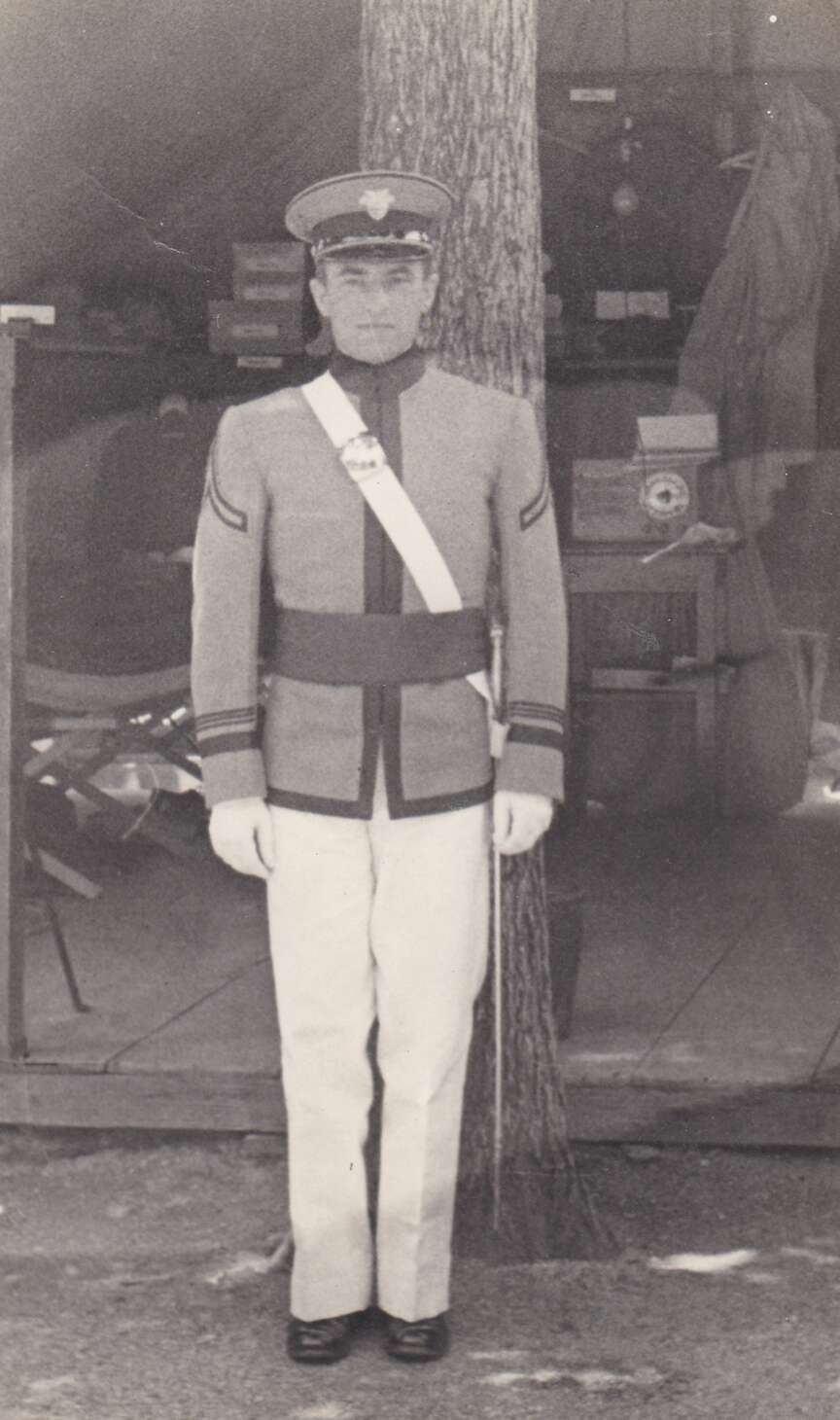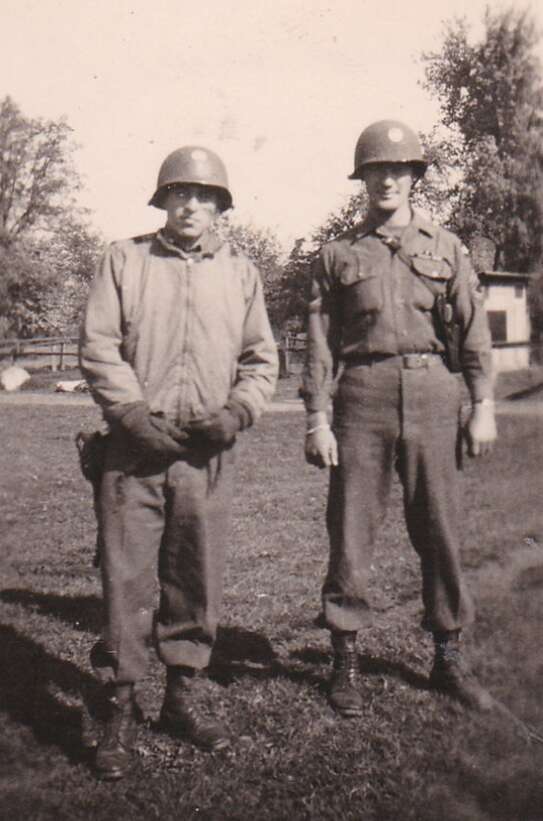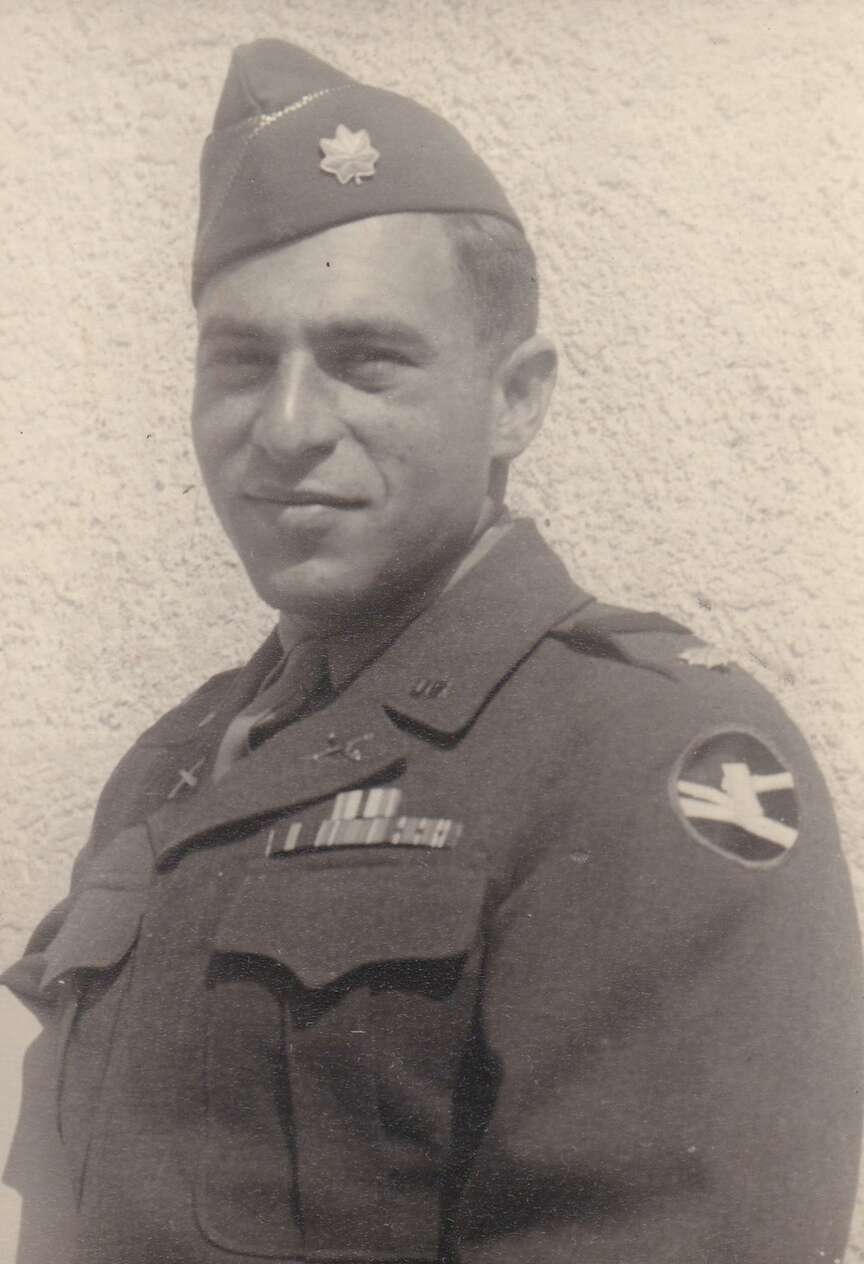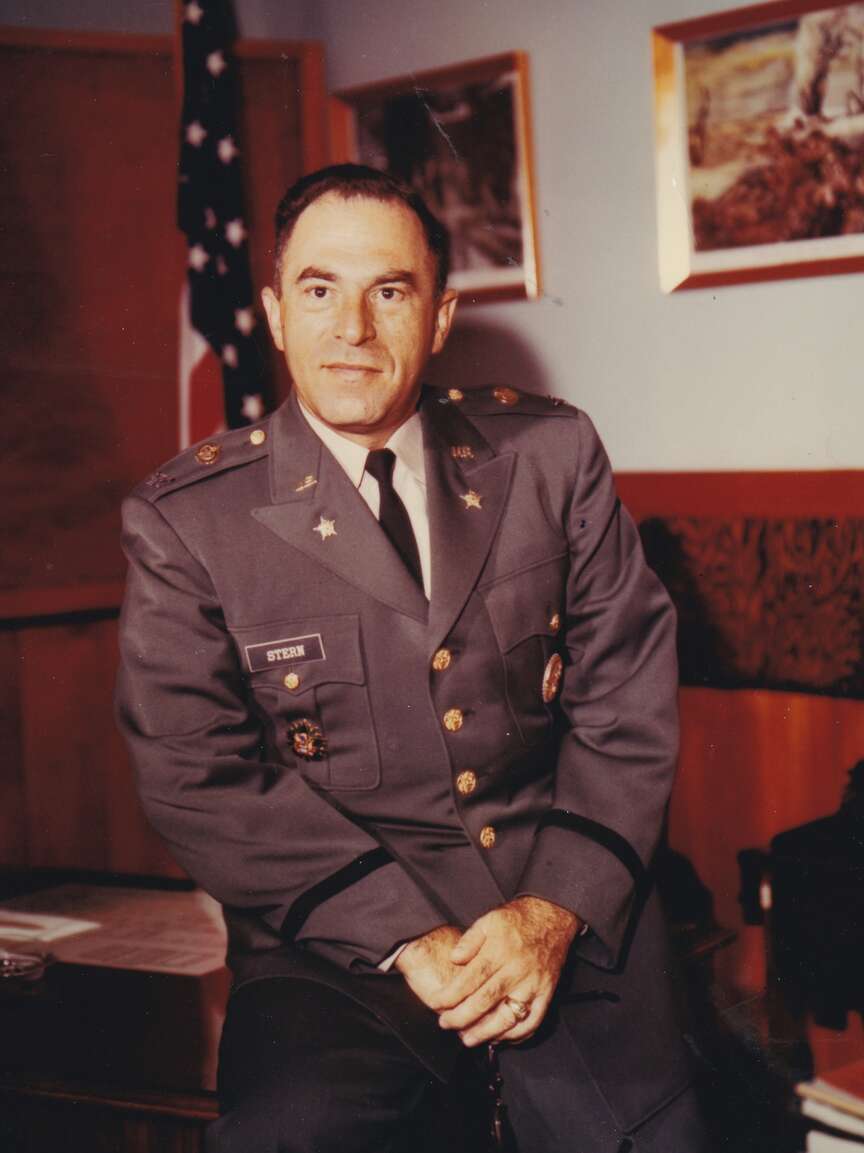At age 106, Herbert Stern has made some life adjustments.
"I don't go pheasant hunting anymore," said Stern, the oldest living graduate of the U.S. Military Academy at West Point. "I had to give it up when I turned 102. I've lost a lot of my strength."
He now walks with the aid of a cane, but he still drives a car, goes shopping and cooks two meals a day for himself in his apartment at Falcons Landing senior living community in Potomac Falls, Va.
Stern, who turned 106 on Christmas Eve, said he is surprised he has made it this far.
"I did everything I shouldn't do," he chuckled. "I smoked until 1969. I have been a social drinker since 1942 and still am. My preference is single malt scotch, but I have tried it all."
Stern, a retired U.S. Army colonel, graduated from West Point in 1941. He is the last living member of that class.
"Not only that, I'm the only West Pointer to make it to 106," he said.
Born and raised in what was then the small rural community of Rockville, Md., Stern was appointed to the academy in 1937. His West Point class played a crucial role in World War II as America fought bloody campaigns on two sides of the globe. Stern is featured in the 2014 book "West Point '41: The Class That Went to War and Shaped America."
"We were very close because we were the last class to graduate before the war," Stern said. "I'm the last one left now, but I still hear from children of my military friends. It's very gratifying."
After artillery training at Fort Sill, Oklahoma, Stern went to Europe as a commander with the 325th Field Artillery Battalion of the 84th Infantry Division, arriving in France in 1944. On Dec. 16, his unit was fighting at the Siegfried Line in Germany when the Battle of the Bulge began, and was then ordered to Belgium to help stop the enemy counterattack.
In the Ardennes Forest, Stern recalled, he set up 105mm Howitzer cannons, then went to scout the terrain. He soon encountered a Belgian woman, he said, who was screaming, "Les Boches! Les Boches!" - a disparaging slang term for German soldiers.
"The Germans were nearby, so I picked up the battalion and moved it behind an infantry unit because we needed protection," he recalled. "That night, the Germans took the area we had vacated. It actually could have been our elimination."
He was later presented with both the Silver Star and Legion of Merit for his bravery and for putting himself in harm's way, even after being ordered to stay behind the lines of battle.
After World War II, Stern remained in the Army, attending the French War College in Paris and serving as provost marshal in Bavaria during the Allied occupation of Germany. He was joined by his wife, Rose, whom he met while stationed in Oklahoma. They had two children: Bette, who died 15 years ago, and Robert, who still lives near his father.
Because Stern spoke French, he was sent to Vietnam in 1950 as an adviser. France was trying to hold onto its Southeast Asian colony, but lost the First Indochina War, leading to Vietnam's independence in 1954. Stern said he could see things were difficult there and hoped the United States would not get involved.
"It was a complete mistake to be there," he said. "From the very beginning, it was obvious this was going to be a meat grinder."
When the United States sent combat troops to Vietnam in 1965, Stern said, it was only a matter of time before he was ordered there.
"I never went back," he said. "I just told them I never agreed with what we were doing in Vietnam, so I retired."
Stern left the Army in 1968 as a colonel after 27 years of service, returning to Rockville to run his father's furniture store and to work as a property manager for a realty company. He retired in 1975, and spent his days hunting and fishing. He was happy to finally have time to spend with his family, but was heartbroken years later when his daughter died, followed by his wife in 2015.
"Rose and I had a great life together," he said.
Stern moved to Falcons Landing in Virginia several years ago. On Christmas Eve, he marked his 106th birthday with fellow residents. It was fun, he said, but did not compare to the celebration he had 80 years ago in Belgium.
In 1944, his unit was headquartered in a chateau during the Battle of the Bulge. A countess who lived in the castle learned it was his birthday, he said, so she served mulled wine to the Americans. Then she asked Stern to follow her upstairs.
"The countess opened the door and there was a big bathtub full of hot water. She says, 'This is your birthday present. Happy birthday,'" he recalled, adding that she then walked out and left him to his bath. "I hadn't had a full bath in months. That was the best birthday I've ever had. I've never forgotten that."
These days, Stern keeps busy by reading history, swapping stories with neighbors and spending time with his son Robert and grandson Joshua. Since he celebrated his birthday, he set a new goal: "To be 107," he said.
"It's been a great life," he added. "I feel good that I was able to make a contribution to our freedom. I got to travel in parts of the world I never heard of before. Not bad for a little country boy."





